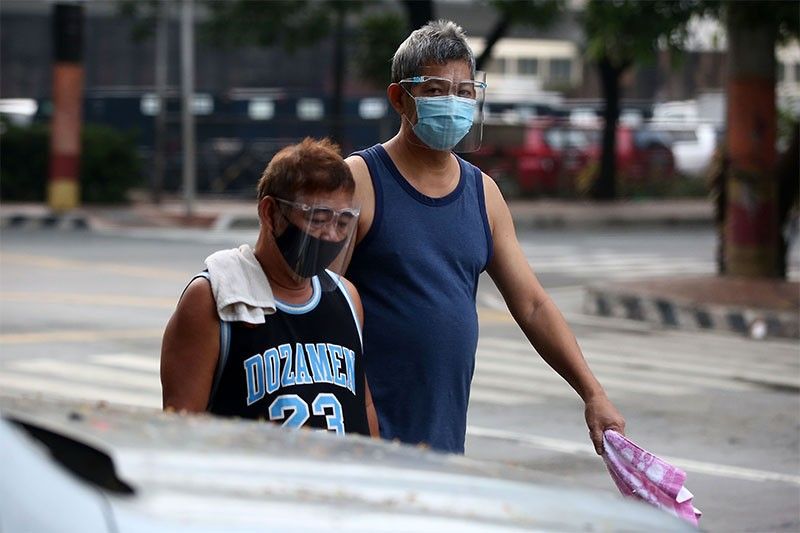COVID-19 vaccinations begin in Philippines. So does reopening its economy

MANILA, Philippines — As the Philippines finally launched coronavirus vaccinations on Monday, the government wasted no time to reopen industries hobbled by quarantines— even without formally loosening lockdowns themselves.
While officially Metro Manila and eight other areas remain under general community quarantine (GCQ) this month, cinemas, arcades, and libraries may begin accepting guests in these areas starting March 5 under a new trade department circular issued on the same day inoculations arrived from China, but uploaded to the agency's website only on Monday.
Museums, tourist attractions, cultural centers as well as conference halls may also accept patrons by Friday, subject to different capacity limitations as well as health protocols, Memorandum Circular 21-08 stated.
It was the first sign of the Philippines' unwavering effort to revitalize a fledgling recovery by permitting more enterprises to go about their business, even if that means some people conjugating in unventilated areas, and highly prone to coronavirus contagion.
In a Viber message, Trade Secretary Ramon Lopez justified the relaxation despite original opposition from some cities and municipalities. “That’s why (it’s) gradual. And subject to additional guidelines,” Lopez said.
“Depending on the situation in their areas, they may allow but lower capacity,” he explained.
Under original specifications, activities like watching cinemas or attending face-to-face conferences would have only been allowed under modified GCQ, the looser quarantine there is, and which most of the archipelago are placed on. Each quarantine status allows “categories” of businesses to operate whenever a type of lockdown is in effect.
Hence, to allow cinemas, arcades and the like to open up, Lopez’s department that oversees private enterprises simply re-categorized them, skirting what supposed to be a quarantine change from no less than President Rodrigo Duterte himself before they can reopen. Quarantine status are re-assessed every month.
Under the memo, cinemas in GCQ areas may be filled up to 25% capacity, increasing only to 50% under MGCQ. Conference halls may accept 50% and 75% of their attendees in person, respectively. Arcade game centers may reopen with 50% of their patrons under GCQ, and 75% under MGCQ.
The contentious plan pushed through despite castigation from local government units when floated 2 weeks ago at the risk of triggering fresh spikes in coronavirus cases (2,037 new cases were reported on Friday). Lopez said LGUs were consulted before he issued the memo, but whether or not cities and municipalities would follow suit with an actual go-ahead for these establishments remains to be seen.
What is clear is that this changes the dynamics of being under one type of quarantine over another. The Metropolitan Manila Development Authority, which manages traffic flow in the capital, earlier said a shift in lockdown status barely matters anymore, and this new reclassification of activities to get them running again only blur more lines than clarify them.
More broadly however, Acting Socioeconomic Planning Secretary Karl Kendrick Chua said there would be no rush to shift the entire Philippines to MGCQ despite ongoing inoculations. “We will regularly review the health, econ and vaccine data to make our next recommendation to the president,” he said in a separate Viber message.
Although vaccinations of health workers started on Monday, there is no illusion the process would proceed swiftly. Only 600,000 doses of vaccines from Chinese firm Sinovac are being used at the moment, while a scheduled Monday arrival of 525,600 doses of AstraZeneca vaccines was postponed to next week.
At this point, all expected doses are donated ones since government-procured jabs would not be available until the third quarter because of tight vaccine supplies. The sluggish roll-out of immunization has therefore prompted economic managers, including Lopez and Chua, to consistently prod on lifting prohibitions, including allowing face-to-face classes, only to be outvoted by the rest of the Cabinet in the end.
The reopening by March 5 is likely only a start of the long journey to normalcy that Duterte himself said would have to wait until 2023, way beyond his presidency that ends on June 2022. Steven Cochrane, chief Asia-Pacific economist at Moody’s Analytics, agreed with him.
“I think the President’s note of caution is noteworthy and recognizes that it will take more than just a vaccine to spark further economic recovery,” he said in an email.
- Latest
- Trending






























